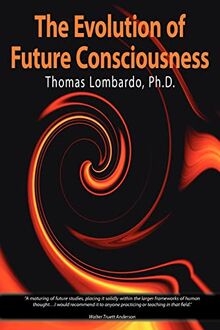
Are there any unique qualities that humans possess that make us special within the world of nature? Since the beginnings of recorded history, we have pondered this question. What if many of humanity's highest qualities and unique achievements, such as technology, civilization, morals, self-consciousness, freedom of choice, religion, and science are all built upon a single distinctive human capacity? It may be that our highly evolved mental power to envision and think about the future is at the core of our greatest accomplishments and most unique human attributes.
In The Evolution of Future Consciousness, psychologist and futurist Tom Lombardo examines the human ability to be conscious of the future, to create ideas, images, goals, and plans about the future, to think about these mental creations and use them in directing one's actions and one's life. In the opening chapter, he looks at the psychology of future consciousness and its values and benefits, as well as ways to enhance this human ability. Subsequent chapters describe the emergence of future consciousness in pre-historic times and how it was critical in the development of love and bonding, the family, tools, and human aggression and hunting; the central importance of the future and time in early myths, religions, and classical philosophy; and the rise of modern futurist thinking, covering the Renaissance, the Scientific Revolution, the Western Enlightenment, and the Romantic counter-reaction. The book concludes with Darwin and how the theory of evolution revolutionized humanity's conception of both the past and the future.
In its companion volume, Contemporary Futurist Thought, Tom Lombardo completes his survey of the historical development of future consciousness, discussing significant ideas and approaches to the future in the last century, including science fiction, future studies, and an extensive array of recent theories and paradigms of the future.